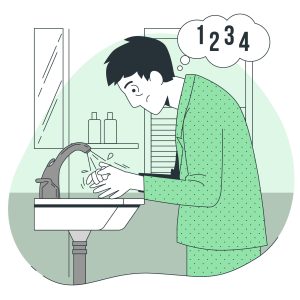
A Guide To Understanding And Managing Depression Symptoms
Depression is one of the most common mental health disorders. Currently, around 5% of adults in the world are suffering from depression. With a large

Depression is one of the most common mental health disorders. Currently, around 5% of adults in the world are suffering from depression. With a large

OCD is a deeply misunderstood disorder. Often, we see people around us referring to someone as being “extremely OCD,” when they are talking about someone

Anxiety is a common emotion that many of us are familiar with. We may all experience it on certain occasions that may be stressful. This

We specialize in combining psychotherapy with deep wellness practices like mindfulness and meditation and creating a customized mental health plan for individuals and organisations.
We specialize in combining psychotherapy with deep wellness practices like mindfulness and meditation and creating a customized mental health plan for individuals and organisations.

A young woman from another country moved with her family to live for one year in a town near the monastery. When, in the course of the year she discovered the monastery, she would periodically visit to have discussions with the Abbess. The Abbess introduced her to meditation, which became very meaningful for the young woman.
When the family’s year-long stay was drawing to an end, the young woman asked the Abbess, “In my country there is no Buddhism and no one has even heard about meditation. How can I continue to learn and deepen the practice you have started me on?”
The Abbess said, “When you return home ask far and wide for who, among the wise people, is recognized as having the greatest ability to listen. Ask that person to instruct you in the art of listening. What you learn about listening from such a person will teach you how to further your meditation practice.
― Gil Fronsdal, A Monastery Within: Tales from the Buddhist Path